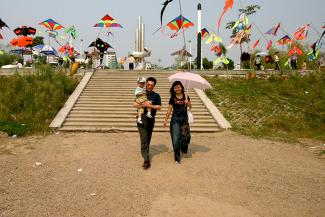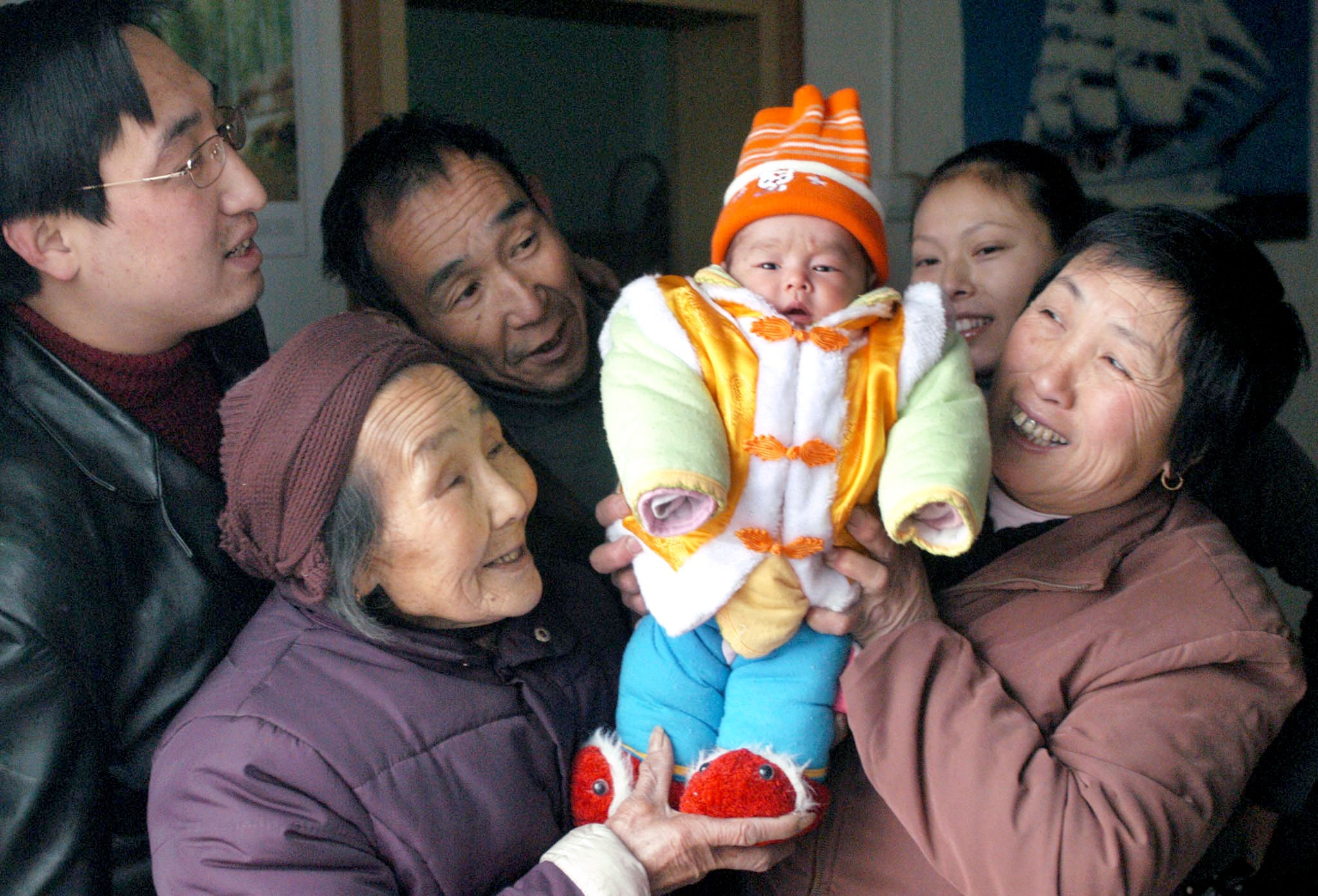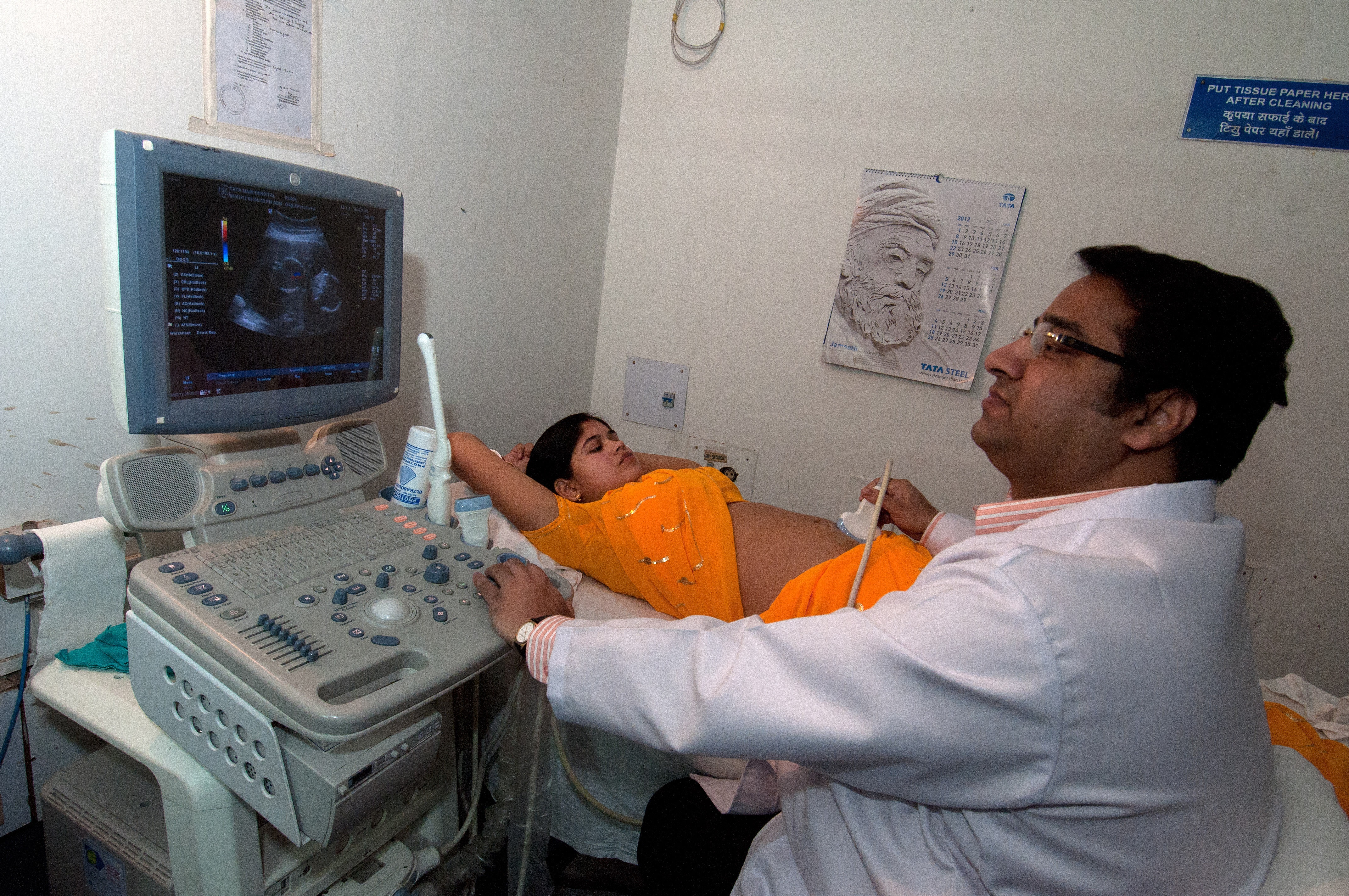Retirement provisions
From the iron rice bowl to the filial piety law

Retiring at 55 is an option for women working in China’s public sector. Women factory workers can retire as young as 50, men at 60. That, at least, is the official rule, but it is also largely theoretical. The reality is far from being so rosy.
Over three-fourths of people over 60 lack the means to retire. If they benefit from a pension scheme at all, the benefits are far too small to actually live on. That is particularly true in rural areas, but things are harsh in cities too. Though urban workers have been entitled to receive state pensions at 50, 55 or 60 in recent years, they cannot count on those benefits for much longer. The retirement age will soon rise to 65 across the board. This is one example of the government’s attempts to grapple with a gigantic challenge: China is getting old before it has got rich.
Society is ageing fast, resulting in immense problems. In 2004, people over 60 made up 9 % of the population. In 2017, that share was 16 %. By 2050, the government expects it to rise to 40 %.
One reason is the increased life expectancy. It is currently 72 years on average and will likely rise thanks to improving medical care. But the main reason is China’s family policy: for over 35 years, the Chinese leadership enforced a one-child policy in order to stem population growth in the world’s most populous country. Even western demographics experts were long in favour of this approach, but it is becoming ever more evident that it is leading to disaster.
“Have one child and you’ll be happy.” This slogan was repeated in children’s songs and featured in TV commercials. The one-child policy was adopted in 1979. It went far beyond slogans. Whoever became pregnant a second time had to face draconian punishments. Millions of women underwent forced abortions, young men suffered forced sterilisations. Second children who were born nonetheless had no claim to places in nurseries or schools.
The Communist leadership was certainly ruthless, but there was good reason for worries. China’s population had nearly doubled to about half a billion people from 1949 to 1979. The economy was still underdeveloped, and so was the country’s infrastructure. Population growth was thus a daunting challenge.
The radical policy delivered results fast. The birth rate dropped abruptly from an average of eight children in the 1960s to one child per woman. The Communist party boasted that its policy had prevented 400 million births.
Today, however, the negative impacts on the economy, society and social services are being felt. Since 2011, the number of working-age people has been falling sharply, while the number of pensioners who depend on support keeps growing. This development will continue. In 2030, the People’s Republic will have more pensioners than kids under the age of 15. By the middle of the century, every third Chinese person will be older than 60. Even today, the state pension scheme has a mere three financial contributors for every beneficiary.
Only in the past 10 years did China begin to establish a public pension system that people might actually live on. Until the 1970s, under Mao Zedong, the revolutionary leader, the population was split into two groups. The urban population lived according to the principle of the “iron rice bowl”. They were entitled to a job, an apartment and food vouchers. With a monthly salary equivalent of less than what € 50 buy today, their entire lives were regulated in great detail from nursery school to retirement.
Urban residents only made up a tenth of the people, however, as 90 % lived in rural areas. They were given parcels of land, and farmers were basically expected to feed themselves. They could sell any surplus to the cities, but most did subsistence farming. Old-age provisions thus strictly remained a family affair. The traditional attitude still made sense: the more children parents had, the better prepared they felt for old age.
Economic reforms began in the 1980s, but they did little to change the rural-urban divide. The leadership initially focused on generating high rates of economic growth. Many Chinese people moved from the country to the cities and coastal regions. They were happy to be able to earn money in the newly established industrial centres and achieve a modest degree of wealth. They sent the little that they could save of their monthly wages back to family members in the countryside. A comprehensive social security system was unthinkable.
However, the one-child policy disrupted the traditional method of rural old-age provisions. A young married couple now had four parents and up to eight grandparents to take care of. According to traditions, married women were supposed to support their husbands’ parents in old age, not their own. The implication was that parents who only had a daughter would have no one to care for them when old. Boys were thus more valuable, and many girls were aborted. The result was a significant surplus of men.
For many years, efforts to establish a pension system concentrated on urban people. Until the 1990s, however, a public pension scheme only served government employees, party members and staff of state-run industries. Private-sector corporations did not exist.
Things changed with the economic liberalisation of the 1980s. Millions of young men and women from the countryside moved to the cities seeking work in factories or service industries. They were considered migrant labourers, and the government provided no benefits to them for a long time. Officially, they were still farmers with land to cultivate.
The number of migrant labourers quickly grew to several hundred million, however. In the 1990s, their numbers amounted to over half of the total population.
The government has since changed its approach. It has created a pension system for private-sector employees. Employers and employees make matching contributions into a social fund, which insures employees against disability or unemployment and guarantees them a basic pension. To some extent, that system also relies on government subsidies.
What should work in theory, however, does not do so in real life. The situation of migrant labourers remains particularly precarious. Their wages have risen dramatically in recent years, but most companies’ social funds still do not provide adequate pensions. Legal requirements thus remain unfulfilled, and, as a result, factory workers often go on strike.
The situation of rural people is precarious too. The government has promised to adjust their circumstances to those of city dwellers. Its rural pension system is voluntary however, and in view of farmers’ meagre earnings, it adds up to no more than a drop in the bucket. Hu Xingdou, an economist at the Beijing Institute of Technology, says: “Rural people have no choice but to work for as long as they can and to rely on their families in old age, just like they would have done in China in the Middle Ages.”
The government wants to alleviate the problem at least somewhat. Five years ago, it replaced its one-child policy with a two-child policy. It has also completely ended its efforts to control population growth. But this redirection of family policy has come far too late. “The demographic collapse can no longer be stopped,” says Hu. It has indeed been underway for a long time.
There have been numerous reports on Chinese social media about elderly people who have been found completely neglected in their homes or on the street. Their relatives did not take adequate care of them. In response, the government has passed a law regarding the “protection of elderly people’s rights and interests”. It stipulates that anyone over 60 has a right to regular contact with relatives. Seniors can not only sue their children or grandchildren to provide them with a living; those relatives are even required to visit them regularly. The law does not define exactly how often. However, government newspapers say “every two months”.
Felix Lee works for the German newspaper die tageszeitung (taz) and was its China correspondent until 2019.
flee@taz.de








